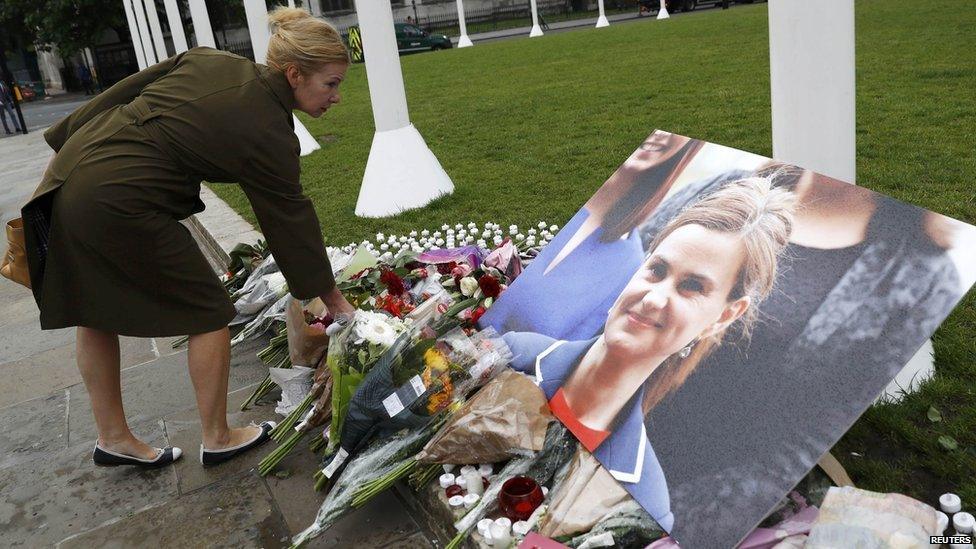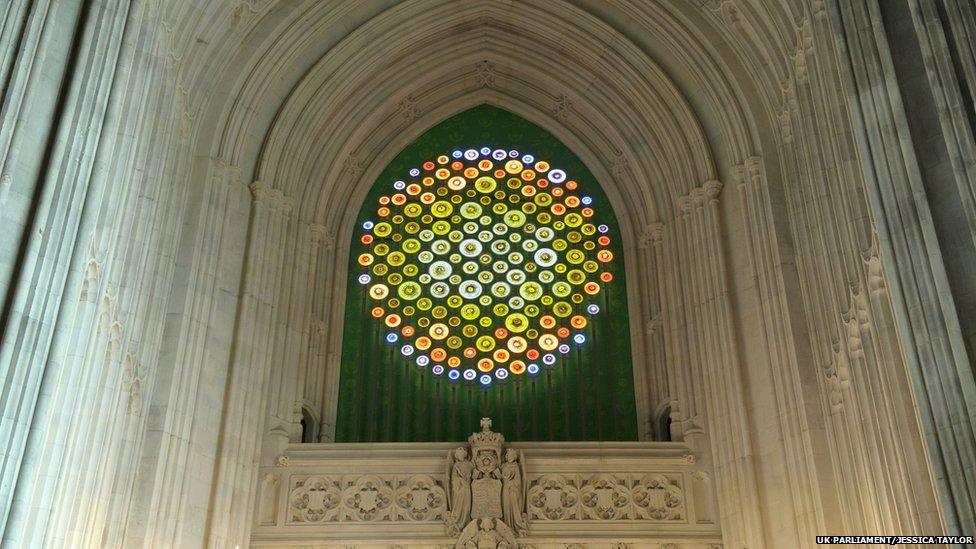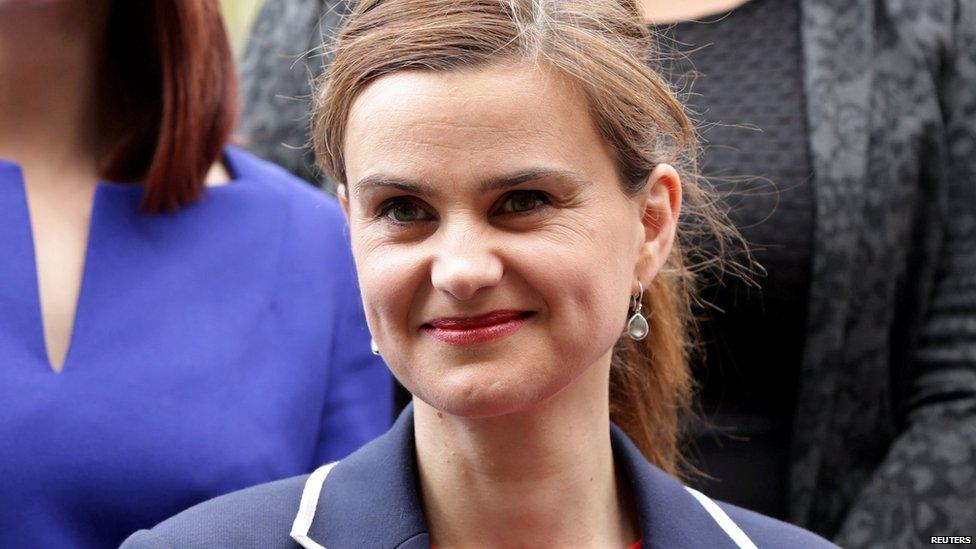One of Jo Cox's last signatures in Parliament supported women's right to vote
- Published

One of Jo Cox's last acts as a Member of Parliament, external was to sign a motion, supporting the recognition of the pioneers of votes for women.
The Labour MP for Batley and Spen died on Thursday after being shot and stabbed in her constituency.
On Monday, she signed an early day motion [below in full] celebrating the beginning of the campaign for women's suffrage, 150 years ago.
The motion also honoured suffragettes such as Emmeline Pankhurst.

As part of the celebration of the anniversary, an artwork was unveiled in the Houses of Parliament, which will remain on permanent exhibition.
New Dawn, a contemporary light sculpture by artist Mary Branson, is intended to reflect the many people who were involved in the 70-year campaign to get women the vote.

Jo Cox leaves behind a husband, Brendan, and two young children. She was 41.
She was elected last year, winning with more than 43% of the votes cast.
Mrs Cox also spoke out in support of other issues affecting women, including the changes to the state pension for those born in the 1950s.
Other motions she has signed in recent months include one in support of Children's Hospice Week and another to address the issues faced by people who do not identify as either male or female.

Labour leader, Jeremy Corbyn said the country would be "in shock at the horrific murder", describing the MP as a "much loved colleague".
He added: "Jo died doing her public duty at the heart of our democracy, listening to and representing the people she was elected to serve.
"In the coming days there will be questions to answer about how and why she died.
"But for now all our thoughts are with Jo's husband Brendan and their two young children. They will grow up without their mum, but can be immensely proud of what she did, what she achieved and what she stood for."
The early day motion: 150th anniversary of the 1866 votes for women petition
"That this House celebrates the 150th anniversary of the first mass petition for women's suffrage on 7 June 1866 which marked the start of the organised campaign for votes for women; salutes the many women who organised it and gathered signatures including Barbara Bodichon, Emily Davies, Elizabeth Garrett and Helen Taylor; acknowledges the role of supportive men including John Stuart Mill MP who presented the petition to Parliament and asked Mary Somerville to be the first signatory of a subsequent petition in 1868; notes that the struggle for votes for women continued until 1928; recognises the role of the suffragists led by Millicent Fawcett who campaigned using peaceful methods such as petitioning, lobbying and marching; further recognises the role of the suffragettes led by Emmeline Pankhurst and others who used militant tactics; welcomes 'New Dawn' the permanent work of art celebrating the campaign for votes for women in Parliament commissioned by the Speaker's Advisory Committee on Works of Art to be unveiled on 7 June 2016; and further notes that Parliament has plans to mark 100 years of the vote for some women and all men in 2018 including a big exhibition in Westminster Hall."
Find us on Instagram at BBCNewsbeat, external and follow us on Snapchat, search for bbc_newsbeat